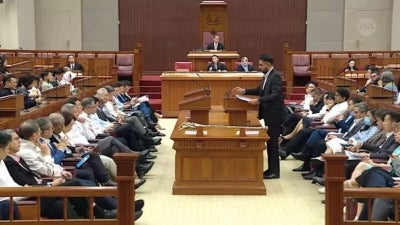Israel, Hamas strike four-day truce-for-hostages deal, but vow to continue war thereafter

JERUSALEM/GAZA - Six weeks into the deadly fighting, Hamas and Israel on Wednesday agreed on a temporary halt in hostilities in exchange for a hostage swap.
The four-day ceasefire, as agreed after weeks of efforts led by Qatar, would provide a brief relief to the people in Gaza and may lead to additional hostage releases, but a definite end to hostilities is tragically nowhere on the horizon.
Israeli Prime Minister Benjamin Netanyahu said Wednesday that the war will immediately resume once the truce expires. Israel's goals are to destroy Hamas' military capabilities and get back all 240 hostages held captive in Gaza, he told a nationally televised press conference.
In a statement Wednesday Hamas also vowed to stand ready for war.
Meanwhile, the deal would not, as expected, come into effect on Thursday, but until Friday at the earliest, Israel's national security adviser Tzachi Hanegbi said in a late-night announcement, without giving reason for the delay.
WIDELY EXPECTED DEAL
Under the deal, Hamas will release at least 50 Israeli hostages, mainly children and women in exchange for 150 female and teen Palestinian prisoners held in Israeli prisons. Meanwhile, hundreds of trucks loaded with humanitarian aid, medicine, and fuel will be allowed to enter Gaza.
The hostages will be released in smaller groups over a span of four days, during which "a pause in the fighting" would take place, said the statement from Netanyahu's office, adding that the release of every additional ten hostages will result in one additional day in the pause.
Hamas is believed to be holding more than 200 hostages, whom the group took when its fighters sallied out into Israel on Oct. 7 and killed about 1,200 people, according to Israeli tallies.
The hostage deal, which had been discussed for weeks, was finally accepted as Netanyahu was under growing public pressure to bring the captives home. Families of the abducted have in recent weeks staged large-scale marches in Tel Aviv and Jerusalem, demanding the safe return of the kidnapped. Pictures of the hostages were seen everywhere in the country, with the tagline: "Bring Them Home Now."
On the Palestinian side, Hamas hopes to get some days of pause in the fighting to prepare for the next phases, said Nimrod Goren, president of the Israeli Institute for Regional Foreign Policies.
Yaakov Amidror, a senior fellow at the Jerusalem Institute for Strategy and Security agreed that the ceasefire gives Hamas more time to be "better prepared for the next stage of the war," yet he said he did not see big losses for Israel as that does not change "the balance of power."
Ahmed Rafiq Awad, a Ramallah-based political analyst said there is an urgent need on the Palestinian side for a ceasefire to provide relief and aid to its citizens and to be able to bury the bodies.
BROADER PEACE INVISIBLE
The four-day ceasefire is the first pause in the deadly fighting, which has killed over 14,000 Palestinians in Gaza and displaced more than one million. Yet both sides have voiced their readiness to resume hostilities once the pause is over and a broader peace is not on the table.
"I want to be clear. The war is continuing. The war is continuing. We will continue it until we achieve all our goals," Netanyahu said in the televised press conference, adding he had delivered the same message in a phone call to U.S. President Joe Biden.
He said he had instructed the Mossad spy agency to hunt down Hamas' exiled leadership "wherever they are."
Israeli's plan is "to destroy Hamas, return all our hostages and ensure that no entity in Gaza can threaten Israel," he said earlier on X, formerly known as Twitter.
Amidror said if Israel stops the war after the ceasefire, that will be the end of the government. "The sentiment within the military forces and the Israeli public is so strong to destroy Hamas that the war cannot be stopped," he said.
Meanwhile, Hamas also said in its statement on Wednesday that their hands will "remain on the trigger," and their brigades remain "on the lookout to defend our people and to defeat the occupation and aggression."
BRIEF RESPITE
A pause in the fighting, however brief, could offer some respite to the people in Gaza and may pave the way for additional hostage releases, said analysts.
Awad said that the truce could lead to the release of more prisoners if the current deal works well, and that the temporary pause might serve as a key to a permanent ceasefire if it is supported or encouraged by different parties.
During the pause in fighting, an increased amount of humanitarian aid will enter Gaza. "It will not address all the needs of the population there but will bring some improvement," he said.
UN Secretary-General Antonio Guterres applauded the deal in a statement, saying it was "an important step in the right direction, but much more needs to be done to end the suffering."
Arab League Secretary-General Ahmed Aboul-Gheit welcomed on Wednesday the humanitarian truce, voicing hope that it would lead to "a comprehensive cease-fire" in the besieged enclave. - XINHUA
Download Sinar Daily application.Click Here!














